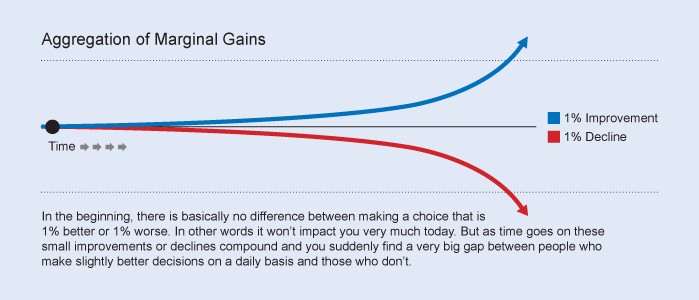Marginal Gains – how this might help with cancer care…
The idea of Marginal Gains is that small improvements, cumulatively, can make a big difference. The most famous exemplar of this is Sir Dave Brailsford, performance director of the British Cycling. He looked at making small improvements in every possible aspect of cycling and demonstrated that 1% differences, added together, made significant improvements in performance. In the last two Olympics, Team GB has won 16 gold medals, and British riders have won 3 out of the last 4 Tours de France.
“The whole principle came from the idea that if you broke down everything you could think of that goes into riding a bike, and then improved it by 1%, you will get a significant increase when you put them all together…” ~ Dave Brailsford (2012)
The idea is taken further by Dr Atul Gawande, in The Checklist Manifesto. He writes about the advantages of admitting to mistakes and making changes as a result of understanding how the error occurred. Again, small changes lead to big improvements.
The same idea is behind Dr David Servan-Schreiber’s book, The Anti-Cancer Life. He writes about small changes, cumulatively, making a huge difference in his life. In his case, a cancer diagnosis gave him 6 weeks to live without treatment and 6 months with treatment. His changes gave him nearly 20 years of life. Please see my review of this book in the News section…
So, the relevance of this to cancer care? Well, this is my landscape, this is where I work. Psychotherapy will never cure cancer, and it would be quite wrong to suggest it might. However, it may be helpful to make suggestions to increase marginal gains for the cancer patient (or indeed anyone suffering long term health issues). And as important as marginal gains are the marginal losses. These are the marginal factors which might negatively impact on the immune system, or stress levels, or well-being, and which whilst of negligible importance individually, cumulatively contribute to ill health. It can be helpful to identify these, and make changes to turn these losses into marginal gains, and together these factors will give you the best possible outcome for your treatment and your quality of life.
